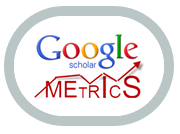IN BETWEEN AFFECTION, KNOWLEDGES, CONVERSATIONS AND STRUGGLES AROUND DISABILITY
AN INTERVIEW WITH LUCIANA FERRARI
DOI:
https://doi.org/10.47456/pl.v14i36.44453Keywords:
Disability. Applied Linguistics. Ableism.Abstract
ABSTRACT: This interview sought to bring understandings about the term disability based on the experiences of Prof. Luciana Ferrari as a researcher on the connections between disability, language and decoloniality and as mother of Lívia, a teenager with cerebral palsy. The questions raised by Prof. Lívia Fortes, professor and researcher in the field of Applied Linguistics, more specifically on teacher education, started from her own process of constructing meanings about disability, intertwined with her personal relationship with Lívia and Luciana, of whom she is a close friend. We hope that the ideas presented and discussed here can lead to processes of interrupting the ableism that is so common in our society.
KEYWORDS: Disability. Applied Linguistics. Ableism.
Downloads
References
CANAGARAJAH, S. A Decolonial Crip Linguistics. Applied Linguistics, v. 44, n. 1, p. 1–22, 2022.
FERRARI, L. Deficiência, Linguagem e Decolonialidade: e se pensássemos o mundo a partir da deficiência?. In: IFA, S. et al. (org.). Linguística Aplicada na Contemporaneidade: práticas decoloniais, letramentos críticos e discurso no ensino de línguas. Campinas: Pontes, 2023.
FORTES, L. “Ser ou não ser”: questões sobre subjetividade e o ensino de inglês na escola pública. São Paulo: Pimenta Cultural, 2023.
KHUBCHANDANI, L. Revisualizing Boundaries: A Plurilingual Ethos. Los Angeles: Sage Publishing, 1977.
LANKSHEAR, C.; KNOBEL, M. New Literacies: changing knowledge and classroom learning. New York: Open University Press, 2003.
MENEZES DE SOUZA, L. M.; DUBOC, A. P. De-universalizing the decolonial: between parentheses and falling skies. Gragoatá, v. 26, n. 56, p. 876–911, 2021.
MENEZES DE SOUZA, L. M. Para uma redefinição de Letramento Crítico: conflito e produção de significação. In: MACIEL, R.; ARAÚJO, V. A. (org.). Formação de Professores de Línguas: ampliando perspectivas. Jundiaí: Paco Editorial, 2011.
MIGNOLO, W. Colonialidade: o lado mais escuro da modernidade. Revista Brasileira de Ciências Sociais, v. 32, n. 94, p. 1–17, 2017.
MALDONADO-TORRES, N. On the coloniality of being. Cultural Studies, v. 21, n. 2–3, p. 240–270, 2007.
PESSOA, R.; SILVESTRE, V. Gepligo (Grupo de Estudos de Professoras/es de Língua Inglesa de Goiás) em prosa and verse: entre desaprendizagens and learning otherwise. In: PESSOA, R. et al. (org.). Universidadescola e educação linguística crítica: compartilhando vivências dos GEPLIs GO, MT e DF. Goiânia: Cegraf UFG, 2022.
QUIJANO, A. Colonialidade do poder, eurocentrismo e América Latina. In: LANDER, E. (org.). A colonialidade do saber: eurocentrismo e ciências sociais. Perspectivas latinoamericanas. Buenos Aires: CLACSO, Consejo Latinoamericano de Ciencias Sociales, 2005.
RANCIÈRE, J. O mestre ignorante: cinco lições sobre a emancipação intelectual. Belo Horizonte: Autêntica, 2005.
ROCHA, C. H. Educação linguística na liquidez da sociedade do cansaço: o potencial decolonial da perspectiva translíngue. D.E.L.T.A., v. 35, n. 4, p. 1–39, 2019.
ROCHA, C. H.; NETO, A. Translinguagens: discurso, políticas e pedagogias. Revista X, v. 15, n. 1, p. 1–6, 2020.
Downloads
Published
How to Cite
Issue
Section
License
Copyright (c) 2024 PERcursos Linguísticos

This work is licensed under a Creative Commons Attribution-NonCommercial-NoDerivatives 4.0 International License.
O autor de submissão à Revista PERcursos Linguísticos cede os direitos autorais à editora da revista (Programa de Pós-Graduação em Linguística - UFES), caso a submissão seja aceita para publicação. A responsabilidade do conteúdo dos artigos é exclusiva dos autores. É proibida a submissão integral ou parcial do texto já publicado na revista a qualquer outro periódico.
Os trabalhos aqui apresentados utilizam a licença Creative Commons CC BY: Attribution- NonCommercial- NoDerivatives 4.0 International. Para mais informações, verificar: https://creativecommons.org/licenses/by-nc-nd/4.0/
Os trabalhos na revista são arquivados pelo sistema Rede de Preservação PKP (PKP PN) e LOCKSS





